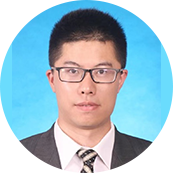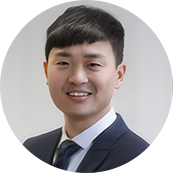Session Title: Cloud-Edge Collaborative Energy Management and Operation Control for Virtual Power Plants
With the rapid development and digital transformation in the energy field, virtual power plants, as an innovative energy management model, are playing an increasingly important role in optimizing the allocation of energy resources and improving the efficiency and reliability of the energy system. The introduction of cloud-edge collaboration technology brings new opportunities and challenges to the energy management and operation control of virtual power plants.
- 1. Architecture and modeling of virtual power plants
- 2. Cloud-edge collaborative algorithms and strategies for energy management
- 3. Optimization of operation control based on cloud-edge collaboration
- 4. Data analytics and decision-making support in virtual power plants
- 5. Integration of renewable energy sources in the cloud-edge collaborative framework
- 6. Security and privacy issues in cloud-edge collaborative energy management
- 7. Case studies and practical applications of virtual power plants with cloud-edge collaboration
- 8. Performance evaluation and benchmarking of cloud-edge collaborative systems
The scope of contributions includes but is not limited to the following aspects:
Special Session Chairs

Yang Gao
Shanghai Jiao Tong University, China
Dr. Yang Gao is now an assistant professor with Key Laboratory of Control of Power Transmission and Conversion, Shanghai Jiao Tong University, Shanghai, China. In the past, he worked as a postdoctoral fellow at the KTH Royal Institute of Technology, Sweden for one year in 2019, a senior research associate at the University of Manchester and University of Bristol, United Kingdom in 2021 and 2022, and a research fellow at the National University of Singapore, Singapore in 2022 and 2023. His main interests include digital twin optimization and control of integrated energy system, microgrid, and multi-agent technology in Energy-internet. He is an assistant professor with Key Laboratory of Control of Power Transmission and Conversion, Shanghai Jiao Tong University, Shanghai, China. His main interests include digital twin modelling and swarm intelligence control of integrated energy system and microgrid.

Qian Ai
Shanghai Jiao Tong University, China
Prof. Qian Ai (Senior Member, IEEE) received the bachelor's degree in electrical engineering from Shanghai Jiao Tong University, Shanghai, China, in 1991, the master's degree in electrical engineering from Wuhan University, Wuhan, China, in 1994, and the Ph.D. degree in electrical engineering from Tsinghua University, Beijing, China, in 1999. He was with Nanyang Technological University, Singapore, for one year and the University of Bath, Bath, U.K., for two years. He was with Shanghai Jiao Tong University, where he is currently a Professor with the School of Electronic Information and Electrical Engineering. His current research interests include power quality, load modelling, smart grids, microgrid, and intelligent algorithms. He was the recipient of the IEEE Industrial Application Society Prize Paper Award in 2016.

Kangping Li
Shanghai Jiao Tong University, China
Prof. Kangping Li is currently an Assistant Professor with the College of Smart Energy, Shanghai Jiao Tong University. He received the B.Sc. degree and Ph.D. degree both in Electrical Engineering from North China Electric Power University, in 2015 and 2020, respectively. From Aug. 2020 to Jun. 2022, He was a Postdoctoral Researcher with the Department of Electrical Engineering, Tsinghua University. He currently serves as an Associate Editor of IEEE Transactions on Industry Applications and Protection and Control of Modern Power Systems (PCMP). He also serves as a secretary of CIGRE C1.47 Working Group “Energy Sectors Integration and impact on power grids” and IEEE PES (China)-Integrated Energy System Operation and Planning subcommittee. His research interests include demand response, electricity market and energy forecasting.